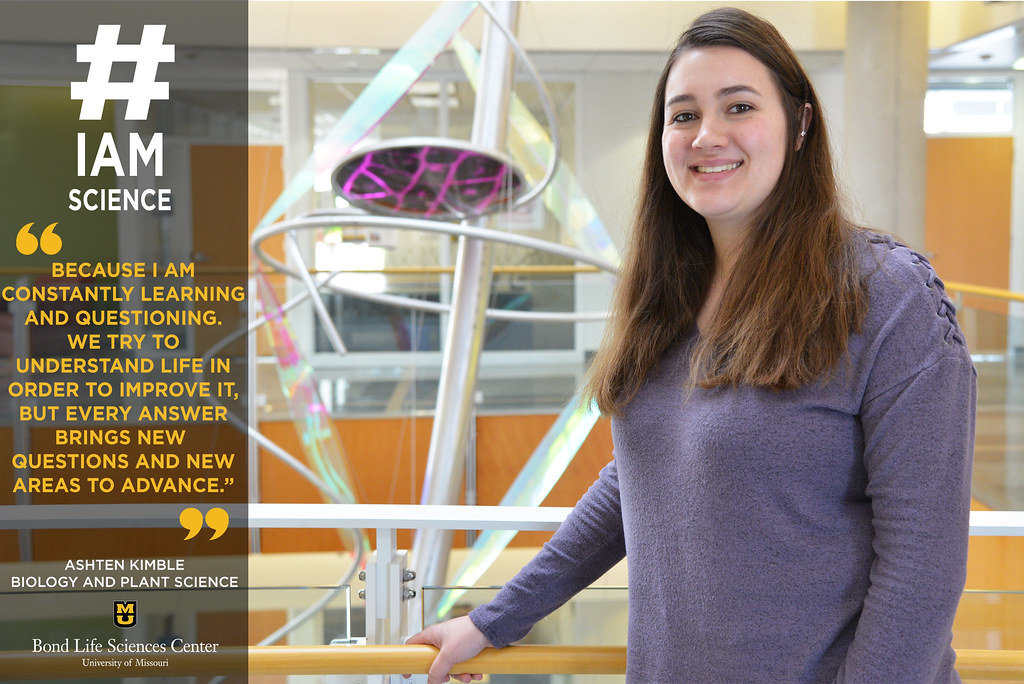
By Allison Scott | Bond LSC
“#IAmScience because I am constantly learning and questioning. We try to understand life in order to improve it, but every answer brings on new questions and new areas to advance.”
If you walked into Ashten Kimble’s apartment, you’d notice immediately that it’s filled with plants. While some plant biologists refrain from caring for plants on their days off, the graduate student embraces being surrounded by life.
As a part of Walter Gassmann’s Lab in Bond LSC, Kimble is able to analyze the inner workings of plants, too. Her dissertation is about understanding the relationship between a plant’s defense mechanisms and proteins from pathogens like viruses, bacteria and fungi.
“The plant tries to stop the pathogen from invading it, but to do that it has to recognize proteins the pathogen sends inside it,” Kimble said. “I’m trying to see if it’s enough for the plant to recognize half of a pathogen protein and still be able to stop it.”
If a plant is unable to stop the invasion, its fate is sealed.
“The pathogen infects the plant leaf by leaf until it shuts down,” Kimble said.
Specifically, Kimble works with Arabidopsis — a model that is believed to have applicable characteristics to other plants. That means the impact of her findings can be great.
“If the plant can recognize the pathogen protein, I want to know what part of the plant’s DNA that occurs in,” Kimble said. “If I can identify a region [of the plant where it occurs], that information could translate to other plants.”
Doing so could lead to a significant shift in food safety; however, plant diseases are constantly changing.
“We have to think of things in an evolutionary scale,” Kimble said. “I’m working on a specific gene, but in the future what we know about it could change and be very different.”
That would put a wrench in her findings, but the ever-changing nature of plant pathogens serves as a point of excitement for Kimble.
“It keeps things interesting,” Kimble said. “From a science perspective, it’s a good thing. It’s something new to explore.”
The variety in her day-to-day experiences in the lab mirrors why Kimble pursued an education in plants in the first place. She worked in agriculture and was entranced by everything plants are capable of.
“I like the variety of things I can do with plants, whether it’s in the field, a greenhouse or the lab,” Kimble said.
After graduation in Summer 2019, Kimble hopes to enter the industry side of science. She wants to encourage others, especially those who wouldn’t consider themselves science-savvy, to better understand what exists at the root of research.
“I think it’s important for people to be curious and question what they’re told,” Kimble said. “If people seek out knowledge first hand, rather than just go off what they are told, they have better information to make decisions.”

